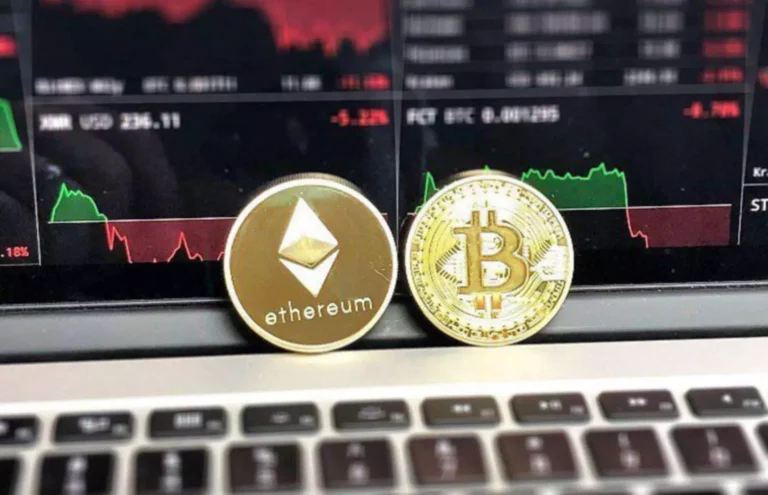The fuel payment is the quantity of gas used to carry out an operation, multiplied by the price per unit fuel. Gasoline charges are paid utilizing ETH, the native token of the Ethereum network, regardless of whether the transaction succeeds or fails. The base payment is the minimal quantity of fuel required to complete a transaction on the Ethereum blockchain.
- Layer 2 networks are also gaining traction, and heaps of DeFi tasks are shifting to those solutions to cut back transaction costs for customers.
- The precise worth of the gasoline is set by supply, demand, and community capacity on the time of the transaction.
- Ethereum maintains a more decentralised community whereas scaling costs through Layer 2s, preserving security front and centre.
- Setting a low fuel value can delay your transaction or cause it to be rejected if the network demand is high.
Live Gas Fees
Proto-danksharding increases Ethereum’s transaction throughput from round 15 transactions per second (TPS) to roughly 1,000 TPS. This enchancment drastically reduces gasoline fees by making transactions more efficient and fewer costly. The objective of this improve was to remove the unpredictability of gas fees primarily based on community site visitors. The lack of surety compelled users to attempt to outbid the gasoline costs of different users, consequently taking the gas costs even higher.
Even with mounted base charges, there is no certainty that the ETH fuel fees shall be low. Naturally, validators favor to select transactions with greater fuel costs, to earn the next commission for his or her work. Due to this, customers maintain attempting to outbid other transaction requests to get their transaction included in a block first. The identical principle of compounding charges applies to Ethereum fuel charges and their potential total impact in your crypto portfolio. Actively shopping for and selling on the Ethereum platform or participating in decentralized finance (DeFi) activities may cause you to pay gas charges that quickly add up. And—unlike the mostly white label predictable fees charged by stock brokerages—Ethereum gasoline charges can (and do) spike.

The gasoline price is determined by the type of transaction and degree of congestion on the blockchain community whereas the transaction is processing. The extra users making an attempt to finish transactions at the same time, the higher the gasoline worth. However what exactly is gas and why is it so crucial to the success of a blockchain network? In this text, we clarify the significance of fuel and gas charges in the blockchain house.
What Occurs Should You Don’t Pay Sufficient Gasoline Fees?
Whereas gas may be tricky, it’s an essential part of the Ethereum ecosystem. As the cryptocurrency space continues evolving, many improvements continue across the business, together with making transaction prices cheaper and sooner. While it’s necessary to save heaps of on gas charges, it’s equally essential to make sure the transaction is processed. Setting the gas value too low may outcome in the transaction getting caught with out processing.
Easy transactions, like transferring tokens between wallets, require much less fuel than extra complicated operations, corresponding to interacting with smart contracts. As a end result, more complex transactions will typically have greater gas fees. The Dencun upgrade https://www.xcritical.in/, which includes EIP-4844 (proto-danksharding), is a significant step towards bettering Ethereum’s scalability. This improve expands block space and enhances information availability, significantly benefiting Layer-2 solutions.

To best perceive how fuel fees are calculated, we’ll first need to clearly define a quantity of terms. By attaching a price to each transaction, gasoline fees additionally assist discourage malicious actors from spamming the community, because the monetary burden of those makes an attempt can turn into unsustainable. The Ethereum 2.zero improve guarantees lowered fees by increasing community efficiency and capability. Sharding, a core component of PoS, will distribute transactions across multiple chains. For merchants looking for to maximize efficiency whereas minimizing fees, platforms like Sensible Bit Enhance present instruments and techniques tailored for optimizing transactions in high-demand networks.
Other components, similar to community upgrades, security incidents, and ETH value swings, can drive sudden charge will increase by boosting buying and selling and on-chain activity. This formulation supplies the exact value in ETH for any transaction, enabling users to estimate fees before confirming them. If you wait until the network is less congested, you can get a fuel fee of solely zero.01 ETH (~$18). Customers specify most limits to pay for their transaction to be executed.
Fuel fees are used on the Ethereum blockchain and network to incentivize users to stake their ETH. Staking works to safe the blockchain because it discourages dishonest conduct. For staking their ETH, homeowners are given small payments as a reward for helping to safe the blockchain and help it operate. There are several tools that present real-time visibility into the network’s condition. Ethereum gas charges are subject to fluctuations primarily based on provide and demand, as well as the general capacity of the network. Ethereum 2.0, also recognized as Eth2 or Serenity, aims to boost the Ethereum community’s scalability, safety, and sustainability.
High gas charges on Ethereum have led many customers to look for different choices. A Quantity Of different blockchain platforms now offer affordable charges and useful features. Gasoline fees are transaction fees paid to miners or validators to process actions on a blockchain network. A multi-phase Ethereum 2.0 improve is ready for August 2022, designed to intensify scalability, security, and effectivity, changing from a proof-of-work consensus to a proof-of-stake mannequin Gas Fees in Crypto. Transaction throughput will significantly improve and cut back gasoline fees by decreasing the amount of computing power required per transaction.





